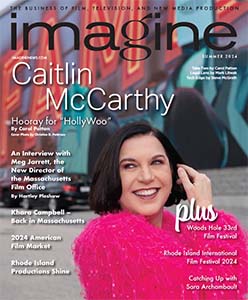You have one, correct? I know you have a life; you’re reading this; how exciting it is is your business; I’d be happy to hear the more salacious details. But imagine pitching the plot. It’s good practice. And can ameliorate the pressure writers feel sometimes trying to dream plots up. The greatest stories, really, are the simplest ones, leaving lots of space to embellish and elucidate. If you Google the Seven Basic Plots, you’ll probably end up confused because they seem to overlap, but, in their essence, they always come down to change. Something changes, something makes the antagonist have to reevaluate; he or she loses something important and has to fight to win it back, love, land, money, power.
So? What’d you lose? Your innocence, we know that. Someone close to you, a job you wanted, a part that went to some loser actor nowhere near your prowess and talent? Have you misplaced your pride, your dignity, your fortune? Think about how many movies, plays, books and songs hang on that basic a hook. And how many have touched you, deeply? And what’s that about anyway, the being moved by art? Why are we such softies, even the most cynical of us? Because a. it feels revivifying to feel something, even if we don’t like to admit it, especially in our alarmingly increasingly segmented techno society and, b. it’s personal. A father and daughter have a strained relationship; it resonates somewhere in our own psyches. Little kid in jeopardy? We were kids once and can remember the fear of abandonment or helplessness or peril. Try having kids of your own and going to see, say, LORENZO’S OIL or some other weepfest that makes you want to go home and hug your children till it hurts.
Hurting is helpful in plots. At our most recent Write On Golden Pond workshop, I had the eight writers pretend we were working Sesame Street and the Letter D. Could have been any letter, except maybe X, but I was in a D kind of mood. “Give me a word that begins with D and can move a story forward,” I said. “Please.” I always say please. Well, immediately some fatalist said, “Death!” Yeah, right? Death. How many movies start with a Dose of Death to get things warmed up and draw family members or friends together (THE BIG CHILL)? Or plant a timely one at, say, the end of the first act (BAMBI)? Or build to the big tearjerking climax (LOVE STORY)? Death is a Dynamic D.
“Who else?” I asked, nodding unsubtly at my wheelchair-bound rock-n-roll buddy Gary Lavenson. “Got a D?” Turns out he did. Disease. MS in his case, thirty years on that ride. He cried when he told us the story and we cried, too. And I told my eight writers that that’s the ticket, always: if you find yourself getting emotional when you’re creating the story, chances are excellent that your audience will be moved, too. See above – feeling something. Another D – Duh.
“Next?” Then they were on a tear, Ds were flying around the table; the writers couldn’t write fast enough. Disorder, which includes Depression, always a crowd pleaser and maddeningly identifiable with. Deception, Deceit, Duplicity, Dismay, Dislocation, Disappointment, Danger, Disaster! Divorce; nothing funnier than that. “How about a happy D?” I said.
Well, these were writers, not necessarily fluent in joy and contentment. But we got to Delight. We got Delirium. Some smart ass, one of my young punk know-it-alls, said, Drugs! And I’m thinking, yeah, right, who’s gonna make a movie about drugs? And I was real quick, surreptitiously writing that down – make a movie about drugs.
What’s the exercise got to do with your Divine existence? It Demonstrates how easy it is. Choose one or more of the above and Do it. Draft your plot. Win a Palm D’Or.
Let’s take our Beautiful Women. We put our plot in motion with a coupla Ds. I was going to say Double-Ds but then I remembered how many Drunks and horn Dogs show up at the Imaginaires every year and I can’t be held responsible for their Dumbing it Down. We have Margorie’s Death and we have Hank’s Divorce. And we’re off to the Dance.
One of your Googled Basic Plots was the Quest, am I right? That’s what we’ll send Hank on. He needs to find enlightenment and truth, as did, I don’t know, a few thousand other travelers – Ulysses, Dorothy, George Clooney in O, BROTHER, WHERE ART THOU? The boy in BOYHOOD, Nemo the fish, Nemo the captain of the Nautilus, the guys looking for Private Ryan. Why’s that so successful, why has that plot withstood the test of time? Because that’s all that life is. We’re on a journey from the moment we take our first steps until we can’t anymore. We encounter our share of Cowardly Lions and John Goodmans and Six-Headed Scyllas and, if we’re lucky, if we’re quick on our feet and learn from our mistakes, we survive. And what a story we have to tell. Am I right?
I have five additional Beautiful Women for Hank to Discover and Do battle with, Defend against, Defy, Deceive, be Defined by. What have you got? In your plot. Diagram it. It’s a good Drill.
Ernest Thompson, an actor, director and the author of more than thirty screenplays, including the classic ON GOLDEN POND, for which he won an Oscar, a Golden Globe and a Writers Guild Award, offers private coaching and script analysis (ad page 15), weekend workshops at his farm in New Hampshire, and also teaches advanced acting classes in Boston and elsewhere. For more information, visit www.ErnestThompson.us.





